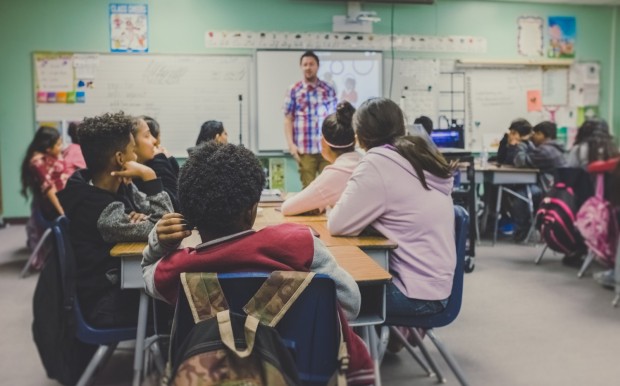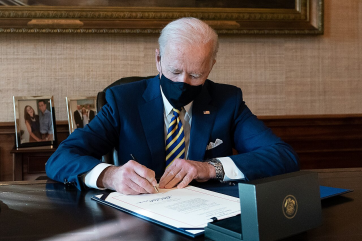Charter Schools in Arizona Employ Flexibility and Innovation to See Record Enrollment.
By David Thompson
Photo : Photo by NeONBRAND on Unsplash
The charter school movement that began in Minnesota in 1991 and became national under a law signed by President Clinton in 1994, has always had some of its most vocal advocates in the state of Arizona.
This fall marks 27 years since the first public charter schools opened in the Grand Canyon state and, despite the uncertainty brought on by the Covid-19 pandemic over the last 18 months, charter schools in Arizona are clearly moving from strength to strength.
According to the Arizona Charter Schools Association, Arizona now has more than 550 public charter schools accounting for 28 percent of the state's total schools. More than 213,000 Arizona students are enrolled in charter schools, making up nearly 20 percent of Arizona's public school enrollment. Academic performance in charter schools is on par and even exceeding that of public schools, with minorities and lower income groups seeing the most impressive gains.
Perhaps even more striking is the latest data released by the Arizona Department of Education showing Arizona's charter districts increased by 18,429 students in the most recent school year, an 8.6% increase. At the same time, public school districts experienced one of their most significant decreases in years. Public districts reported 56,979 fewer students compared to last year, a 6% decrease in public school enrollment.
According to a report released by the National Alliance for Public Charter Schools, the trend in Arizona mirrors what is occurring nationwide, which saw a 7% increase in charter school enrollment around the country.
What accounts for this stunning increase? One immediate factor, according to the report, is the Covid-19 crisis.
"During the 2020-21 school year, the pandemic forced schools of all types to close their doors and switch to remote learning," the report said. "Many families were dissatisfied with the quality of what was available to their children. And that dissatisfaction led them to learn more about the other educational options available. For many families, charter schools' nimbleness and flexibility made them the right public school choice."
According to Jake Logan, president & CEO of the Arizona Charter Schools Association, that flexibility is baked into the very nature of charter schools.
"This kind of growth is only possible because charter schools are giving parents what they want," Logan said "For some families, that means a rigorous college-preparatory academy. Or a specialty school with an emphasis on STEM, the performing arts or other unique focus areas.
"The point is, parents get to choose. Consumer choice and a competitive charter marketplace naturally favor the expansion of quality schools at the expense of underperformers."
Indeed, Arizona charter schools have shown remarkable flexibility to innovate. In a 2020 report put out by the Center for Education, Arizona was the only state in the country to receive an "A" grade. Charter Schools in the state scored particularly high in categories like 'freedom to innovate,' 'teacher freedom' and 'school autonomy.'
But even innovation and flexibility can vary among schools. The pandemic has not only thrown schools into crisis mode, it has turned students' lives upside down. With families experiencing turmoil, jobs being lost, and people looking for new careers, perhaps never in the history of American schooling have so many students required so many different solutions to their needs.
"It's about having greater flexibility in your schedule and you can arrange your classes around work and other responsibilities," said Shannon Smith, Executive Director of Thrivepoint, which operates six charter high schools throughout Arizona. "If you work part-time or full-time or have child care responsibilities, you can arrange your coursework accordingly. Education isn't a one size fits all."
Thrivepoint is no stranger to change, having opened its first branch 25 years ago in Phoenix. The school bills itself as a place for students who are experiencing life events and situations that may preclude them from attending traditional schools.
Thrivepoint offers free online, hybrid, and ground-based instruction. Approximately 30% of Thrivepoint's students participate in the online program and 70% participate in physical campuses or hybrid programs.
"We are a great fit for all types of high school students with family obligations, full/part-time jobs, or special medical needs," Smith said. "Our priorities are to meet the students where they are."
Students focus on just two subjects at a time every six weeks. Classes consist of 5 students or less allowing for small group education with opportunities for one-on-one support. In addition to their regular teachers, students are also paired with a success coach to help guide them. Students can work both online and visit in person should they choose.
"I like it because I like my own space and I like knowing everything depends on me," said Ivonne G., a student at Thrivepoint who mostly uses online schooling but also visits the actual school from time to time. "The teachers are there for you but they also give you your space."
As the Covid crisis continues to pose massive challenges for students and families, the charter school movement in Arizona is poised to benefit by offering flexible and innovative solutions to the communities it serves.
"There's always tweaks and needed changes and reforms that we can and should discuss," Logan said. "But overall we have a really healthy charter school sector and I think they are serving students very well."
* This is a contributed article and this content does not necessarily represent the views of universityherald.com









